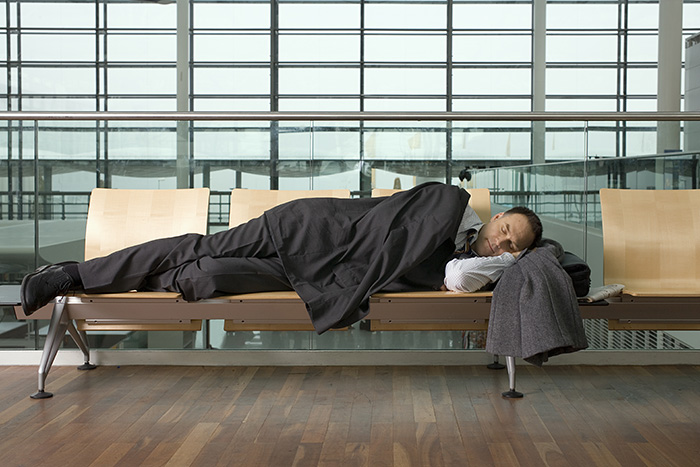Travelling across time zones can be exciting, but it often comes with an unwanted travel companion: jet lag. This temporary condition happens when your body’s internal clock (or circadian rhythm) is out of sync with the new local time. It’s most common when flying eastward and typically lasts a few days as your body adjusts.
Common symptoms include:
- Trouble falling asleep or waking up too early
- Daytime fatigue or difficulty staying awake
- Poor concentration or memory lapses
- Digestive issues such as bloating, constipation or diarrhoea
The good news? With a little preparation, you can ease the effects and adjust faster.
Getting ready before your flight can make all the difference.
Do’s:
- Get plenty of rest in the days leading up to your trip.
- Start adjusting your schedule early — go to bed and wake up an hour closer to your destination’s time zone each day.
- Relax before bed with calming routines and avoid stress where possible.
Don’ts:
- Avoid large meals, caffeine, alcohol, and screen time close to bedtime. These can interfere with sleep quality.
Once you reach your destination, help your body settle into the new rhythm.
Do’s:
- Follow the new local time as soon as possible. Try to eat and sleep according to the new schedule.
- Spend time outdoors during the day. Exposure to natural light helps reset your body clock.
- Set an alarm to prevent oversleeping.
Don’ts:
- Resist the urge to nap for long hours, especially if it’s still daytime at your destination.
- Avoid sleeping too early; wait until a reasonable local bedtime.
Here are some ways you can manage the symptoms:
1. Melatonin supplements
Melatonin is a natural hormone that helps signal to your body it’s time to sleep. Taking a melatonin supplement can be helpful for short-term relief as your body adjusts to the new time zone. However, they’re not meant for long-term use as overreliance on them can disrupt your natural rhythm.
2. Sleeping pills
While jet lag usually improves on its own, short-term sleeping pills can also be helpful. These work differently from melatonin: instead of regulating your sleep cycle, they induce sleep. These should only be used under medical advice, as overuse can affect your natural sleep cycle.
3. Stay hydrated and eat lightly
Drink plenty of water, take electrolytes and avoid heavy meals. Also, limit caffeine or alcohol, which can worsen fatigue.
Jet lag can’t always be avoided, but it can be managed with the right preparation and care. Check out FairPrice Online for a wide range of sleep supplements that can help you.
And if you’re unsure what supplements or sleep aids are right for you, visit your nearest Unity store with pharmacy services. Our friendly pharmacists can recommend travel-friendly sleep solutions and practical advice to help you stay rested, energised, and ready to enjoy your trip.




